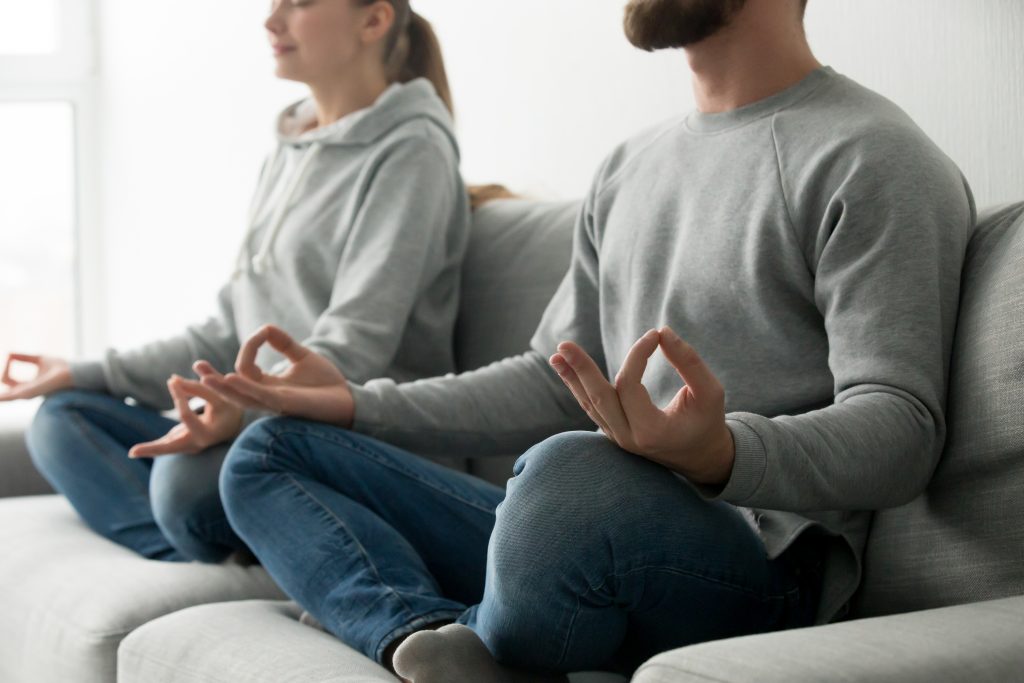
The ups and down of living abroad
Hello, I hope you are well, but if you are not, it’s completely okay. I understand and accept it. What do you mean if you’re not well, it’s okay? So, let me explain better what I mean. First, I invite you to embark on this text about the roller coaster of emotions ( the ups and downs) when we live abroad.
First of all, we need to talk about pleasant and unpleasant emotions. Yes, because although we continually seek happiness, feeling only good things is unrealistic. The sour and harsh reality is that all emotions exist, both “good” and “bad” emotions, and are part of our life.
There is no exception to this fact, and it’s impossible to avoid it. It is as if we live daily on a roller coaster of emotions. We can experience different feelings on the same day, which is the most natural thing in the world.
IS IT POSSIBLE TO CONTROL EMOTIONS?

Emotions are always with you no matter where you go and with whom you are, even if you move to a new country. Of course, no one likes to feel “negative emotions” such as sadness, anger, etc. However, they are essential for survival when alerting us to situations where we must take action to protect ourselves. The critical point is not to focus on “good or bad emotion”, as we will feel all kinds of emotions.
Consequently, you probably think: I don’t want to feel anxiety, sadness, anger, frustration or stress. It is very unpleasant. Yes, of course, it is. But when you accept and recognize your emotions, you learn to seek emotional balance, and the main thing is to learn to BALANCE YOUR EMOTIONS. The most significant wealth a person has today is mental health.
In any case, always remember: All emotions are present in our lives, and they are all critical, as they are signs that direct us to make decisions. When we understand what we are feeling, we will ACT to seek the best solution to cope with the situation instead of “Reacting”.
ACTION is an assertive attitude that helps to keep your well-being in check. On the other hand, REACTION seeks immediate relief but does not solve the problem. We need to find more adaptive ways to express our emotions and cope with adverse situations; this way, we can have a better quality of life!
ACCEPTANCE
Now, let’s talk about my favourite word: Acceptance. Contrary to what many people think, accepting is not simply being passive. It is understanding and being empathetic with your feelings and other people’s feelings. It means that you know there is no point in fighting and denying something that exists because when you decline it, you only increase your pain; you only look at the negative aspect.
KEEP CALM

Even when feelings, sensations and emotions are unpleasant, we have something to learn. It is a sign of change, just as the fever signals that the body is sick. In the same way, our unpleasant (negative) emotions are signals that something is bothering us. So what can we do to find emotional balance? What is the best ACTION? Just wait a second, keep calm, and I’ll explain it.
It seems strange to say calm when we feel something negative or are taken by unpleasant emotions, right? But I’ll use the word CALM to teach you some steps to relieve unpleasant feelings and to balance your emotions. Follow these four steps:
CONTEMPLATE
ACCEPT
LET
MENTALISE
CONTEMPLATE THINGS AROUND YOU
Admire (note) things around you. Let it happen, without judgment, what is going on in your body: good or bad. Look around you, observing every detail of the situation you are in. Describe them in detail for you as a means of moving away from your inner observation.
The more you separate yourself from your inner experience and connect with external events, the better you will feel. Be with your feelings, but don’t be them; be an observer.

ACCEPT YOUR FEELINGS
Accept your feelings of anxiety or any other unpleasant feeling. Even if it seems very difficult, accept the sensations in your body just as you would get an unexpected or unknown visitor or uncomfortable situation in your home. Replace your fear, anger and rejection with acceptance. Don’t fight the sensations. By resisting, you will be prolonging and intensifying your discomfort. Instead, flow with them.
Act, but don’t react to your negative feelings. Try to act as if you are not feeling something unpleasant. That is work with your bodily sensations. Slow down the speed at which you do your things, but stay active! Do not despair, don’t try to escape your feelings by reacting. If you run away, your anxiety may decrease at the moment, but your fear will increase. And the result will be that your anxiety will increase the next time. If you stay where you are and continue to do your things very slowly, your anxiety and fear will lessen. Keep moving very slowly!

LET THE AIR OUT OF YOUR CHEST
Release the air from your lungs! Breathe slowly, calmly, inhaling slowly through your nose and exhaling long and gently through your mouth. Count to three slowly on inhalation, again to three, holding your breath a little and up to six on exhalation. Make the air go to your abdomen, inflating it as you inhale and letting it shrink as you exhale. When exhaling, don’t blow: just let the air out slowly through your mouth. Try to find the ideal rhythm of your breathing, and you will discover how pleasant it is.
MENTALIZE POSITIVE THINGS
Mind your thoughts. You may be anticipating catastrophic things that are likely not to happen. Most of the time, nothing you thought would happen has ever happened. For this reason, it is essential to examine what you are saying to yourself and reflect rationally to see if what you are thinking is true or not: Do you have any evidence that what you are thinking is true? Are there other ways for you to understand what is happening to you? Remember, what you feel now can be unpleasant but not dangerous.
Finally, remember that the way you interpret situations reflects your feelings. Make it a new habit to rethink how you interpret your negative feelings and emotions. Remember that negative and unpleasant feelings are momentary and that you can tolerate these fleeting feelings.
You can recognize your feelings and find emotional balance with much practice. Believe in your inner power to maintain your emotional balance.
So shall we practice?
I hope this article has been helpful and helps you to deal more calmly with the adversities of everyday life and learn to relate differently to your feelings. Share this article with others and help them to keep their mental health.
My best and warm wishes.
Silvana

My name is Silvana, I am a psychologist and the founder of Intercultural Psychology clinic, established in Dublin since 2010. I have been working with hundreds of people living in Ireland, from over 15 countries, helping them to overcome their life, language or cultural difficulties and to be prepare for an international mind set. I love inspiring people and I hope I can do the same for you.



